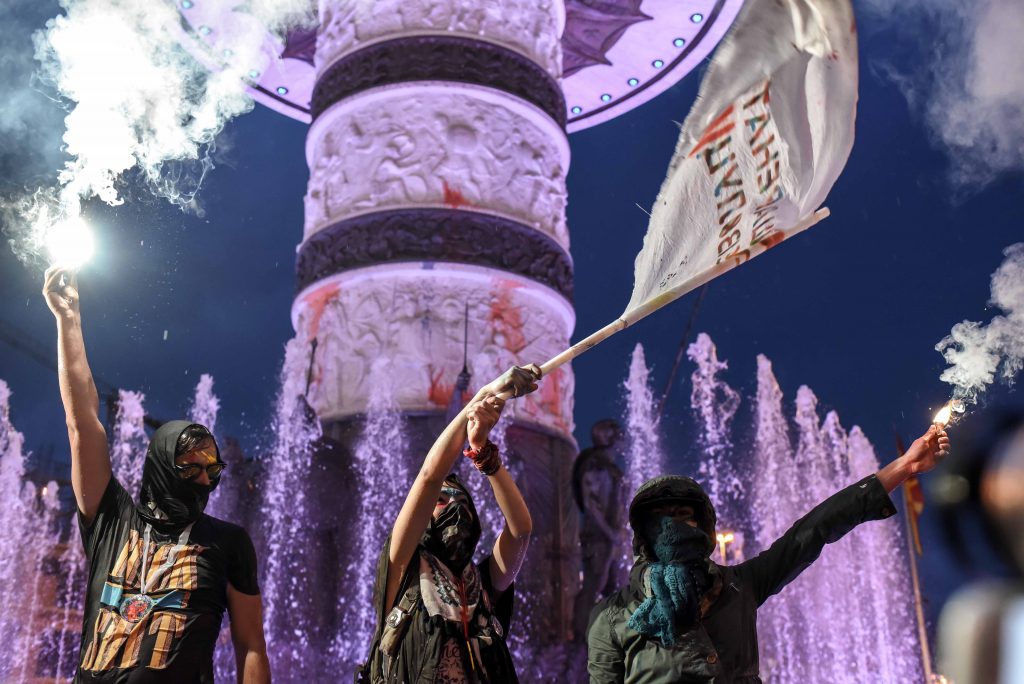Jul 18, 2018
Reconciliation in the Balkans: A Call to Support the Prespes Agreement
The historic Agreement of June 17 2018 signed in the Prespes lakes between Greece and the (Former Yugoslav Republic of Macedonia (FYROM) brings to an end an international dispute which had been festering for the last 25 years. It defines the political, historical and cultural boundaries between classical Greek Macedonia and as of now, North Macedonia, by making it clear that the Macedonian identity can be shared between people who endow it with different meanings. It respects the dignity and the right to self-determination of the two peoples and confirms the desire of both countries for peaceful coexistence.
To achieve this, each side has had to address the concerns of the other side. For Greece, the geographical designation in the compound new name (“North Macedonia”), its application both domestically and internationally (erga omnes), and the requirement that the constitution of FYROM be amended accordingly. For North Macedonia, acceptance of the existence of a Macedonian language as part of the Slavic family of languages (a fact long recognized by the UN and Greece) the designation of the nationality as Macedonian/Citizens of North Macedonia, and crucially, the promise of starting accession negotiations to NATO and the EU.
When completed, this legally binding international agreement will have resolved an issue of contested political identity, so common in multicultural societies, and will offer a model for future resolution of other protracted conflicts.
But the agreement still faces major hurdles in both countries where the hard liners and extremists are mobilizing against it. The government of North Macedonia in particular desperately needs for all parties to fulfill their promise if it is to win the ratifying referendum in the autumn.
In these critical times, when Europe faces the rise of extreme right-wing nationalism and racism, and when dangerous revisionisms are resurfacing in the Balkans and Europe dividing people into “traitors” and “patriots”, it is more important than ever to support those who take risks for reconciliation. We support this fair agreement and call on all parties to fulfill their end of the bargain.
SIGNATORIES
- Kalypso Nicolaïdis, University of Oxford
- Costas Douzinas, Birkbeck, University of London, Βουλευτης
- Etienne Balibar, Université de Paris-Ouest, Kingston University London
- Judith Butler, University of California, Berkeley
- Jean Luc Nancy, philosopher, Strasbourg
- Toni Negri, philosopher, Paris
- Barbara Spinelli, Member of the European Parliament
- Wendy Brown, University of California, Berkeley
- Joanna Bourke, Birkbeck, University of London
- Mary Kaldor, University of London
- Luciana Castellina, Rome
- Frieder Otto Wolf, Freie Universität Berlin
- Catherine Malabou, Kingston University
- Claude Calame, EHESS, Paris
- Bo Stråth, University of Helsinki
- Susan Buck-Morss, CUNY
- Sandro Mezzadra, University of Bologna
- Patrice Maniglier, Université Paris Nanterre
- Elsa Stamatopoulou, Columbia University
- Niccolo Milanese, European Alternatives
- Giacomo Marramao, Roma Tre University in Rome
- Edouard Delruelle, Université de Liège
- Peter Schöttler, Freie Universität Berlin
- Guérot, Danube University Krems, Austria
- Ahmet Insel, Université Paris 1 Panthéon-Sorbonne and Université Galatasaray
- Philippe Büttgen, Université Paris 1 Panthéon-Sorbonne
- Yves Sintomer, Université Paris 8 Vincennes Saint-Denis, CSU-CRESPPA
- Emily Apter, New York University
- Oscar Guardiola-Rivera, Birkbeck, University of London
- Albena Azmanova, University of Kent
- Louis Wolcher, University of Washington
- Jean-Numa Ducange, University of Rouen
- Michal Kozlowski, University of Warsaw
- José luis Villacañas, Universidad Complutense de Madrid
- Gilles Manceron, historian, Paris
- Diogo Sardinia, Paris University
- Bertrand Ogilvie, Université Paris 8 Vincennes Saint-Denis
- Yves Sintomer, Université Paris 8 Vincennes Saint-Denis
- Franck Fischbach, Univesite de Strasbourg
- Teresa Pullano, University of Basel\
- Matthieu de Nanteuil, University of Louvain
- Pietro de Matteis, University of Cambridge
- Guillaume Sibertin-Blanc, Université Paris 8 Saint-Denis
- Stefan Jonsson Linköping University
- Manuela Bojadzijev, University of Berlin
- Rada Rada Ivekovic College International de Philosophie
